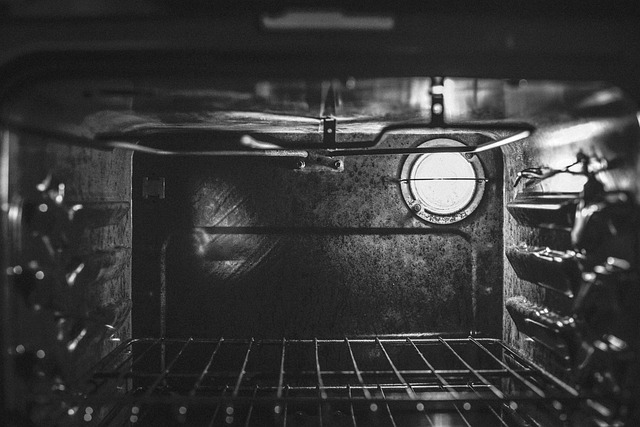Transform Your Kitchen with Smart Appliance Integration: A Seamless Remodel Guide

Smart appliances are transforming kitchens into high-tech hubs, offering unprecedented convenience a…….
Introduction
In the contemporary era, the kitchen has transcended its traditional role as merely a place for food preparation. It has evolved into a nexus of innovation and convenience, where smart technology integration plays a pivotal role. This article delves into the intricacies of remodeling a kitchen to incorporate cutting-edge technology, exploring its significance, global impact, economic considerations, technological advancements, policy implications, challenges, case studies, and future prospects. By the end of this exploration, readers will have a comprehensive understanding of how smart technology integration can elevate the kitchen from a mere utility space to a sophisticated hub of modern living.
Understanding Kitchen Remodel for Smart Technology Integration
Kitchen remodeling with smart technology integration refers to the process of upgrading a kitchen with smart appliances, automated systems, and interconnected devices that enhance functionality, efficiency, and user experience. The core components typically include smart ovens, refrigerators with inventory management, voice-activated assistants like Amazon Alexa or Google Assistant, and IoT (Internet of Things) ecosystems that enable device communication and control.
Historically, kitchens have seen incremental technological advancements, from the advent of electricity to the introduction of modern appliances. However, the integration of smart technology marks a significant leap forward, transforming the kitchen into an intelligent, responsive, and adaptable space. This transformation is not just about keeping up with trends; it’s about creating a more efficient and interconnected living environment.
Global Impact and Trends
The influence of smart technology integration in kitchen remodels is a global phenomenon, with different regions adopting technologies at varying paces due to economic, cultural, and infrastructural factors. In North America and parts of Europe, smart kitchens are becoming the norm, driven by a tech-savvy population and a strong presence of technology companies. In contrast, emerging markets like Asia and Latin America are seeing rapid growth, fueled by increasing disposable income and advancements in affordable smart devices.
Key trends shaping this trajectory include the demand for energy-efficient homes, a growing interest in sustainable living practices, and the proliferation of home automation ecosystems. The trend is clear: the kitchen of the future will be smarter, more connected, and more intuitive than ever before.
Economic Considerations
The economic landscape of kitchen remodeling with smart technology integration is multifaceted. Market dynamics are influenced by consumer demand for smarter homes, the availability of financing options, and the competitive landscape of home improvement and technology sectors. Investment patterns show a trend towards higher initial costs offset by long-term savings on energy and resources.
Smart kitchen technologies contribute to economic systems by creating jobs, stimulating innovation, and driving demand for high-tech products. They also offer a return on investment through increased property values and the potential for reduced utility bills. The integration of smart technology is not just a luxury but an economic decision that can yield significant benefits over time.
Technological Advancements
The pace at which technological advancements are being integrated into kitchen remodels is staggering. From AI-powered refrigerators that track expiration dates to smart faucets that monitor water usage, the possibilities are vast and continually expanding. Advancements in machine learning and natural language processing have led to more intuitive and responsive interfaces, while improvements in IoT connectivity ensure seamless communication between devices.
The future potential of these technologies includes even more personalized experiences, predictive maintenance, and enhanced energy efficiency. As artificial intelligence becomes more sophisticated, we can expect smart kitchens to anticipate our needs, optimize our cooking processes, and become an integral part of our daily lives.
Policy and Regulation
The policies and regulations governing the integration of smart technology in kitchen remodels are diverse and often region-specific. In the United States, for example, there are standards set by organizations like the National Kitchen & Bath Association (NKBA) and the Consumer Technology Association (CTA). These guidelines cover everything from safety and interoperability to data privacy and security.
In Europe, the General Data Protection Regulation (GDPR) has significant implications for how smart kitchen devices collect and handle user data. Globally, the focus is on ensuring that as our kitchens become smarter, they also become safer, more secure, and more respectful of consumer privacy.
Challenges and Criticisms
Despite its many advantages, smart technology integration in kitchen remodels faces several challenges and criticisms. One of the primary concerns is data privacy and security, as connected devices can be vulnerable to hacking and unauthorized access. Additionally, there is a digital divide where not all households have the means or desire to adopt these technologies, leading to inclusivity issues.
Another challenge is ensuring compatibility and interoperability between different brands and devices within the smart ecosystem. The complexity of such systems can also be daunting for homeowners, who may require professional assistance for installation and troubleshooting. Solutions to these challenges include the development of universal standards, user-friendly interfaces, and robust cybersecurity measures.
Case Studies
To illustrate the impact of smart technology integration in kitchen remodeling, let’s examine a few case studies:
The Energy-Efficient Home: A family in California installed a fully integrated smart kitchen system that includes solar panels, an energy-efficient appliance package, and a home automation system to manage lighting and temperature. The result is a significant reduction in their carbon footprint and utility bills.
The Tech Enthusiast’s Kitchen: A tech-savvy individual in Silicon Valley remodeled their kitchen with the latest smart devices, including voice-activated controls, an AI-powered kitchen assistant, and a suite of apps for recipe management and grocery shopping. The user experience is streamlined and personalized, making everyday tasks more efficient and enjoyable.
The Accessible Kitchen: A senior couple in Florida opted for a smart kitchen with voice commands and accessible interfaces to accommodate mobility challenges. The system includes large touchscreens, easy-to-use appliances, and safety features like gas leak detectors and fire alarms.
Conclusion
The integration of smart technology into kitchen remodels is a testament to the power of innovation in enhancing our living spaces. It represents a convergence of technology, design, and user experience that can transform the everyday task of preparing meals into an extraordinary interaction with our homes. As we continue to navigate the challenges and harness the opportunities presented by these advancements, the smart kitchen will undoubtedly become a staple in modern homes worldwide.
In conclusion, the journey towards a smarter, more connected kitchen is an ongoing one, marked by technological breakthroughs, evolving trends, and a growing understanding of the benefits and pitfalls involved. With careful planning and consideration, the smart kitchen can be a reality that not only meets our current needs but also anticipates our future ones, making our homes safer, smarter, and more responsive to our lifestyles.

Smart appliances are transforming kitchens into high-tech hubs, offering unprecedented convenience a…….

Connected kitchen technology has revolutionized modern culinary experiences by integrating internet…….

Touchless faucets with motion sensors have revolutionized smart kitchen design by combining convenie…….

Smart appliances for kitchens are transforming traditional spaces into high-tech hubs, offering unpa…….

Integrating smart lighting systems in modern kitchen design offers dynamic ambiances controlled remo…….

A tech-savvy kitchen renovation leverages smart devices, automated systems, and a central hub to cre…….

Smart appliances for kitchens are transforming modern living by integrating advanced technologies th…….

Smart lighting for kitchens is transforming home spaces with its energy efficiency and sustainabilit…….

Adopting connected kitchen technology, centered around smart thermostats, is a growing trend among h…….